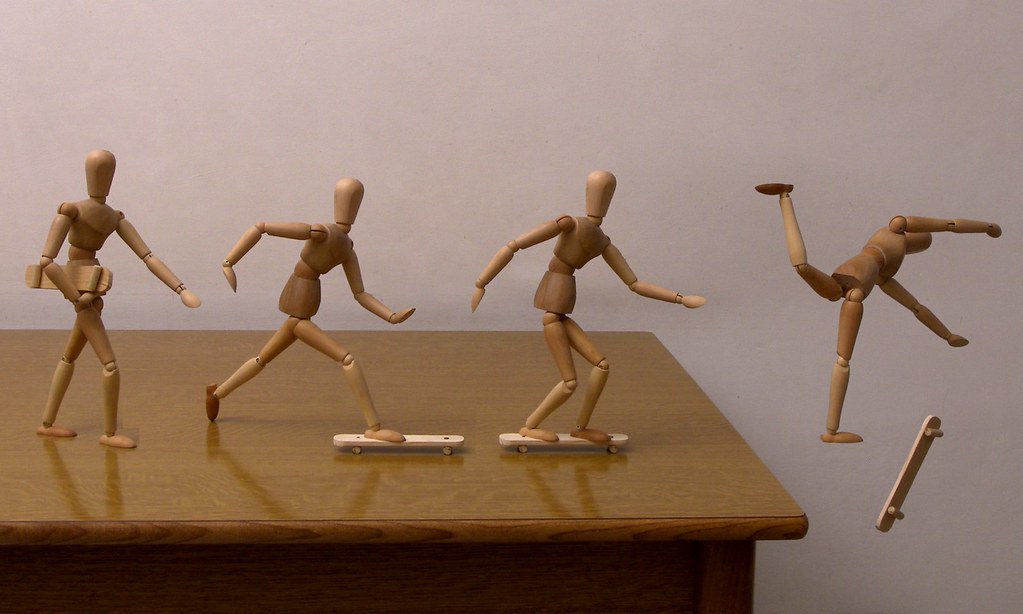Habits are behaviors you do without thought. Your default. Your routine. Habits become the operating system you live your life through.
Marketers, advertisers, psychologists, designers have discovered tiny secrets that help them create behaviors and program an individual’s operating system.
Benjamin Franklin—statesmen, musician, author, inventor—asked himself every morning:
What good shall I do today?
He tracked 13 morals on a daily basis to see how he had been doing. He created a system to develop better habits and improve himself on a daily basis.
I want to share a slice things I have been a part of. I currently work as a software, software is the language I communicate in. I used to work in human-computer interaction for behavior design and research. While there is overlap in technique, this intersection of design, behavior, and engineering is unique.
Many of us have trouble recognizing the fact: You can change your habits, your routines. By using simple tools and frameworks, you can change even the hardest habits. According to a recent study, only about 12% of those who set resolutions achieve them [1]. This means, about 88% of people fail at their resolutions! As the new year starts they may say:
- I will never smoke again.
- I will not eat carbs again.
- I will lose 10 lbs this year.

88% of those who create new year’s habits do not follow through
Many of these resolutions fail in the absense of a habit.
Habits are a series of choices that are individual behaviors. A behavior is a combination of time, environment, physical and emotional energy, and self-discipline. BJ Fogg, Stanford professor and godfather of Captology (the study of Computers as Persuasive Technologies), mentions fundamentally three ways to change behavior [2]:
- Have an epiphany
- Change your environment (what surrounds you)
- Take baby steps
A few months ago, an incredibly smart friend and I were talking about habits. He lost over a hundred pounds over the past year, which was mindblowingly cool to me. And he wanted to do more, though had plateaued. When I started to describe my process, I recognized some subtle framing changes to thinking about habits that combine two interests: developing software and designing behavior.
He asked me this question:
“Is there a secret to maintaining a new, hard habit?”
I want to share a bit of that conversation with you today.
Developing software
Day to day. I write code that defines what a user sees and how a user can behave in software. Software is designed and built with a specific purpose in mind. When it does not work, I use the equivalent of Spell Checker to have the ability to 1) stop time in software, 2) observe all of the complexities happening in code, and 3) change values in the system to see if it will allow the system to keep running. I can see how and when problems happen.
The tools we use in software development do not exist in the same way to develop behaviors. This software system runs on a computer. I can stop time, and observe, change, tinker with the system in action. We can take part of this framework in thinking the software of our everyday lives, the behavior.
Good habits free our minds to advance to really interesting fields of action. William James
Developing behavior
Habits are social systems we operate in. People have said 90% of communication is non-verbal. The amount of signals we receive from different social situations is astounding and our brains are wired to process all of this without conscious thought. The way a software developer parses complexity to find issues is impossible for behavior. There is no analogue to pausing time and figuring out all the variables in a social situation.
Creating an individual habit is hard. Many books have been written about this [3]. Habits never arise in absense of a social situation. Marcus Aurelius once said “the intelligence of the universe is social”. Changing an entire social ecosystem is hard, and so is change in the absense of an ecosystem.
The key to creating new habits is automation: Create systems where the only choice is success.
There are specific tactics to this:
- Start small, simple.
- Make it social, maximize fun.
- Create small feedback cycles, learn, cut ruthlessly.
- There is no forever. Only define behaviors with a time-span.

Create automatic systems to maximize habits. Trying to run? Find a group and join them
References
[1] Wiseman, Richard. 88% of 3000 people failed in their resolutions. http://j.mp/RFd65w Sitenote: Many cite this study, but seem to miss out on a specific reference. Culprits: WSJ, Wikipedia, the Guardian, Buffer. They either contain no citation or cite other news articles.
[2] Fogg, BJ. Tiny Habits. At the time of this writing, over 24,000 have participated. It takes about 3 minutes per day and is a single week. http://tinyhabits.com
[3] Books on habits:
- Charles Duhigg’s Power of Habit
- BJ Fogg’s Persuasive Technology: Using Computers to Change What We Think and Do
- Nir Eyal & Ryan Hoover’s Hooked
- Chip & Dan Heath’s Switch
- Daniel Pink’s To Sell Is Human
- Richard Thaler and Cass Sunstein’s Nudge
Images
- Andando in skateboard / Skating http://j.mp/1ptpBNp
- La course, par Franck Vervial http://j.mp/1h7w0hu